Looking for HESCO barriers for sale? Explore customizable HESCO units made with galvanized wire and geotextile fabric—ideal for military defense, flood protection, and oilfield platforms.
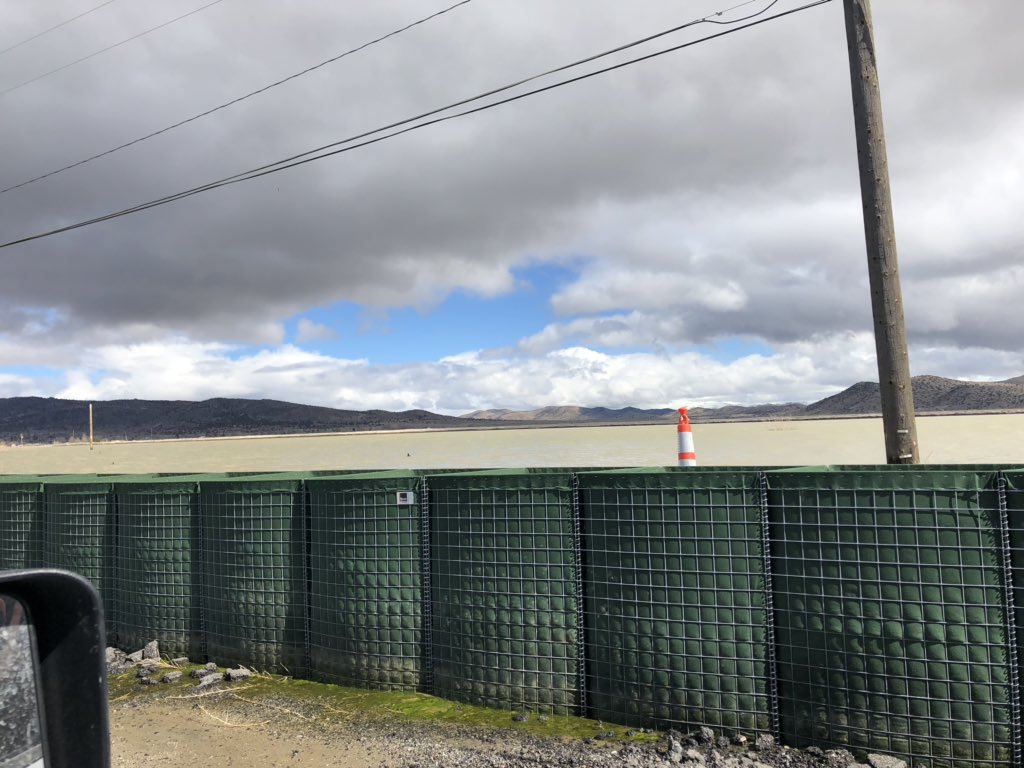
What Is a HESCO Barrier?
HESCO barriers—also known as HESCO bastions or HESCO bags—have become an industry standard in both military and civil engineering contexts. From flood control to blast mitigation and critical infrastructure defense, these collapsible wire-mesh barriers filled with earth offer unmatched protection and rapid deployment.
If you’re researching hesco bags for sale, understanding the material quality, customization options, and global sourcing landscape is essential.
Main Components:
- Galvanized Steel Wire: The steel wire used in HESCO barriers generally has a standard diameter ranging from 3.0mm to 5.0mm, regardless of whether it is hot-dip galvanized or cold-dip galvanized.
- Important distinction: The wire thickness (gauge) stays the same between the two processes; the only difference lies in the zinc coating process and amount.
- Hot-dip galvanized wire: Zinc coating ranges from 40g/m² to 200g/m², offering better corrosion resistance and durability.
- Cold-dip galvanized wire: Lower zinc content, generally used for short-term or cost-sensitive applications.
- Zinc-Aluminum Alloy (Galfan): Available for high-performance military-grade or long-term installations.
- Connecting Springs (Helicals): Also called coils or spirals, used to link adjacent mesh panels.
- Steel Pins (Joiners): For structural stability.
- Geotextile Fabric: Lined on the inner face of each unit. Varies from 200g to 350g/m² depending on tensile strength and usage scenario.
Global Manufacturing and Supply
Manufacturing of HESCO barriers is not exclusive to any one country. Current producers span across:
- UK, Germany
- China, Vietnam
- Pakistan, Afghanistan
United Nations Procurement
The United Nations regularly procures HESCO-style barriers via open bidding, typically every five years. Certified units often bear the marking: “UN USE ONLY, NOT FOR SALE” – indicating designated humanitarian or peacekeeping use.
Applications of HESCO Barriers
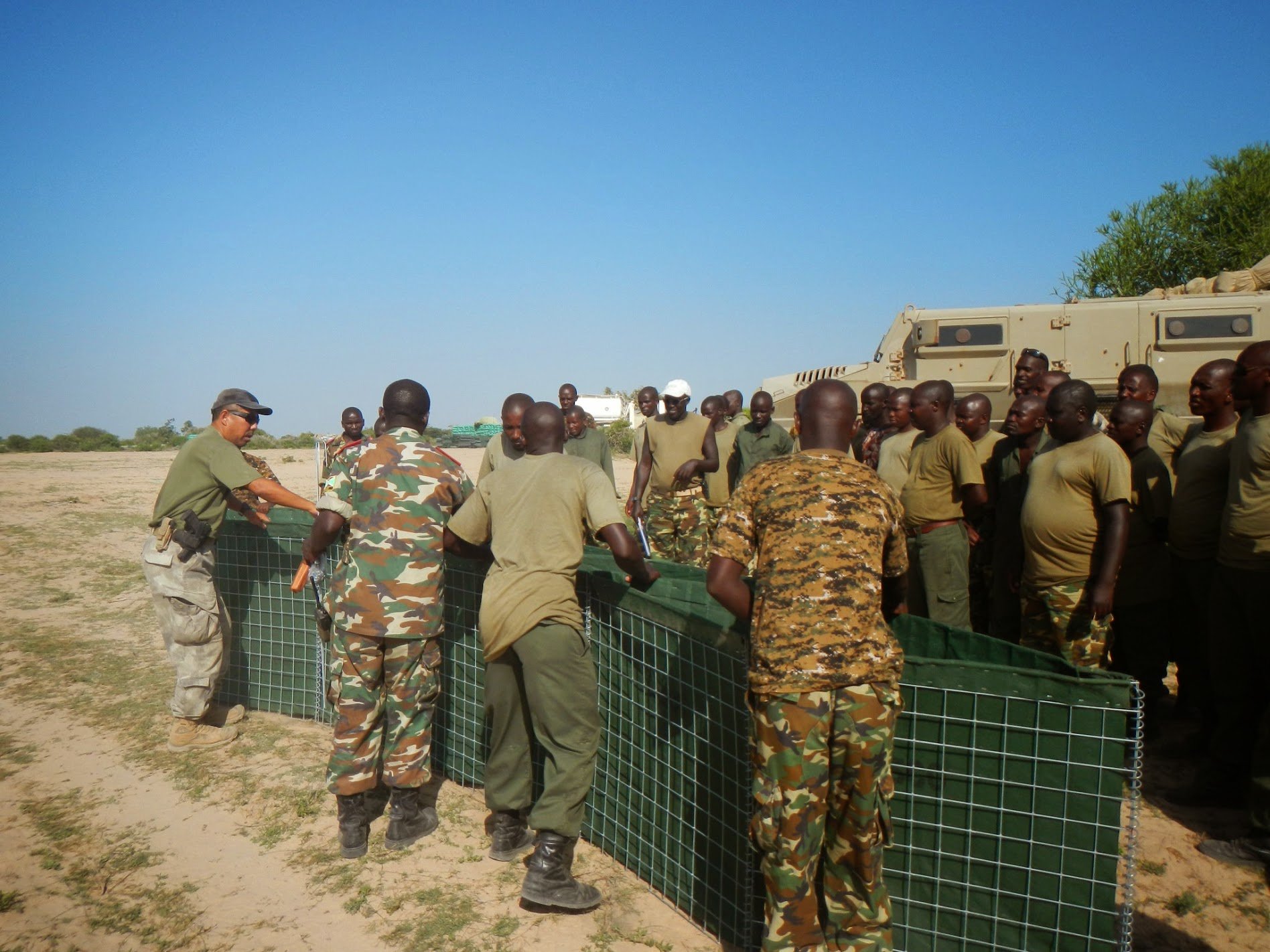
- Flood Protection: Rapid-deployment floodwalls in cities or coastal zones.
- Military Defense: Blast mitigation, ballistic shielding, perimeter fortification.
- Oil & Gas Platforms: Erosion protection and rig perimeter control in remote areas.
- Civil Infrastructure & Border Security: Temporary security barriers for airports, borders, embassies, and public events.
Customization Options
Shape and Structure
- Single Unit / Multi-Unit: Available as one-unit modules or connected systems depending on application.
Opening Mechanisms
- Single-Opening Gate: Two panels with interlocked helicals.
- Double-Opening Gate: Four panels interconnected for frequent access.
- Fixed Walls: Ideal for permanent installations.
Mesh Size
- Standard: 76.2mm × 76.2mm
- Cost-cutting versions: 80mm × 80mm or even 100mm × 100mm
Stacking Height
- Max Safe Height (Single Layer): 3 meters
- Multi-layer Setup: Requires pyramid stacking to maintain stability
Testing & Quality Assurance
For high-performance and safety compliance, certified HESCO barriers often undergo rigorous testing:
Wire Mesh Tests
- Tensile strength at intersections
- Zinc coating uniformity
Geotextile Fabric Tests
- Tensile resistance
- Puncture resistance
- Water permeability
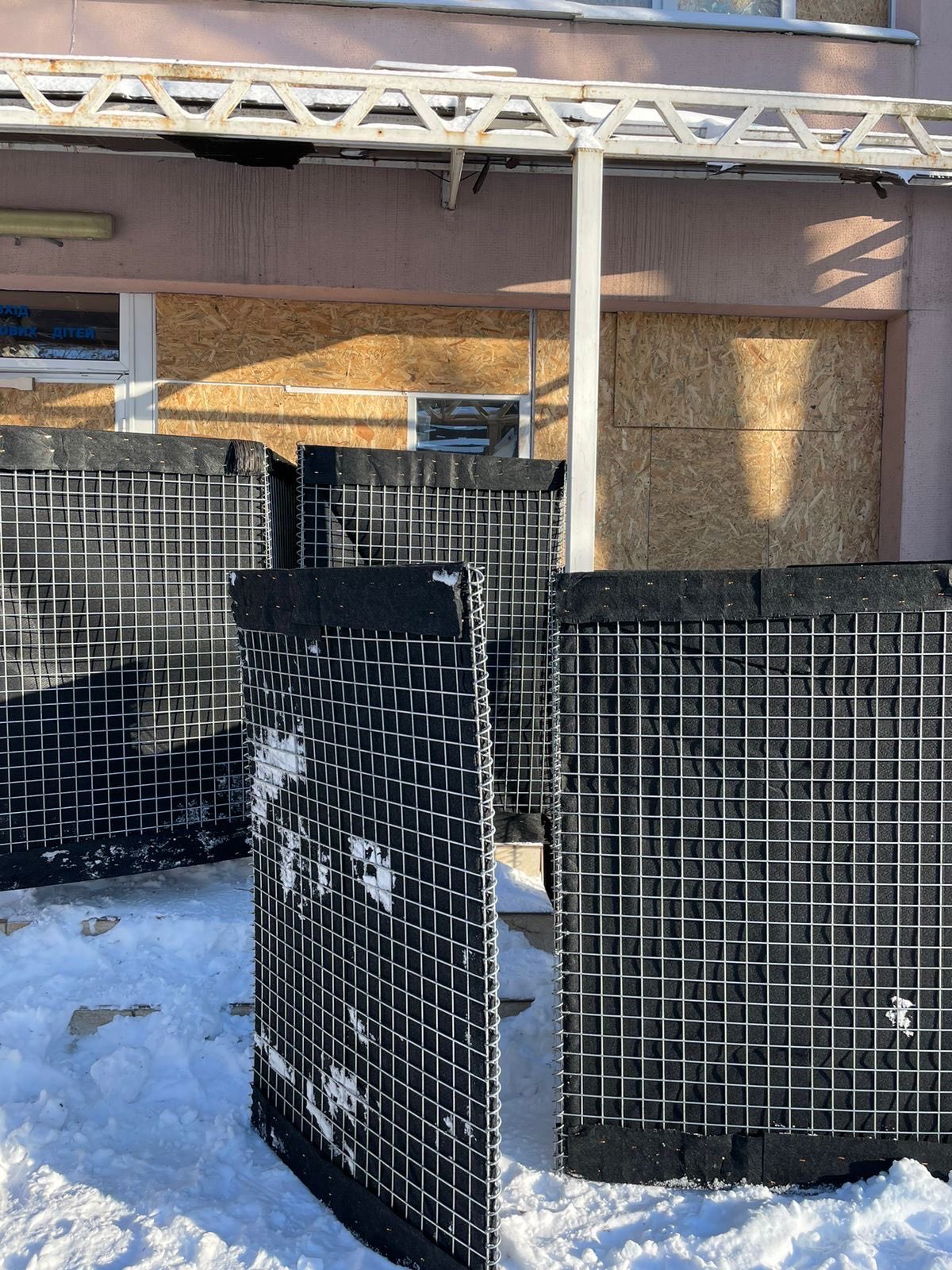
Buyer Beware: Quality Issues in the Market
Not all HESCO barriers are created equal. In many factories, cost-cutting and material fraud are serious concerns that can drastically reduce the product’s durability and safety.
For example, a customer may order wire with a diameter of 4.0mm, but actually receive wire that is only 3.85mm. That small difference has a big impact on structural integrity.
- Wire tensile strength: Military-grade standard requires ≥ 600 MPa, but many suppliers only reach 400–500 MPa.
- Weld shear strength: International standard is ≥ 3.5 kN with no burn-through—yet many suppliers fail this requirement.
- Geotextile shortcuts: Some fabrics used are far below required weight or tensile strength.
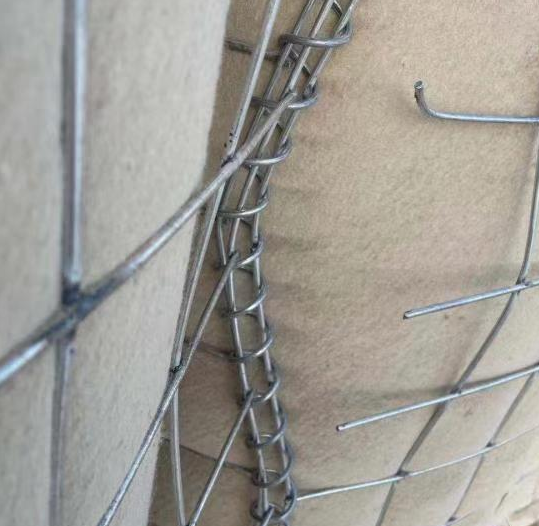
Result: Barriers that fall apart during transport or deployment, fail under pressure, and severely shorten project lifespan. This is especially dangerous in military or flood control scenarios.
Our advice: When comparing HESCO barriers for sale, remember—you get what you pay for. Choose certified, tested, and traceable materials to ensure long-term performance and safety.
Why Choose Certified HESCO Barriers?
- 🌍 Field-Proven Worldwide
- 🛠️ Flexible Design for Complex Terrains
- 🚚 Easily Transportable and Deployable
- 🔧 Custom OEM/ODM Options for Projects
Where to Buy HESCO Barriers?
If you’re seeking HESCO barriers for sale, ensure your supplier offers:
- ✅ Certified hot-dip galvanized wire
- ✅ Quality-tested geotextile fabric
- ✅ Global delivery and custom manufacturing
- ✅ Experience in UN bidding or defense contracts
Looking for hesco bags for sale or bulk purchase of defensive barriers? Contact Us Now for technical datasheets, pricing, and project consultation.
Conclusion
Whether you’re planning for disaster mitigation, military fortification, or large-scale infrastructure defense, HESCO barriers provide a robust and modular solution. Backed by international procurement standards and extensive field testing, these barriers are engineered for reliability and adaptability.
| Parameter | Specification |
|---|---|
| Wire Diameter | 3.0mm – 5.0mm |
| Galvanization Type | Hot-Dip / Cold-Dip / Galfan |
| Zinc Coating Weight | 40g/m² – 200g/m² |
| Mesh Size | 76.2×76.2mm (standard), or 80–100mm |
| Geotextile Fabric GSM | 200g/m² – 350g/m² |
| Unit Configuration | Single / Multi-unit with gate option |
| Max Safe Height | 3m per layer, pyramid for stacking |
Contact us for the latest quote.
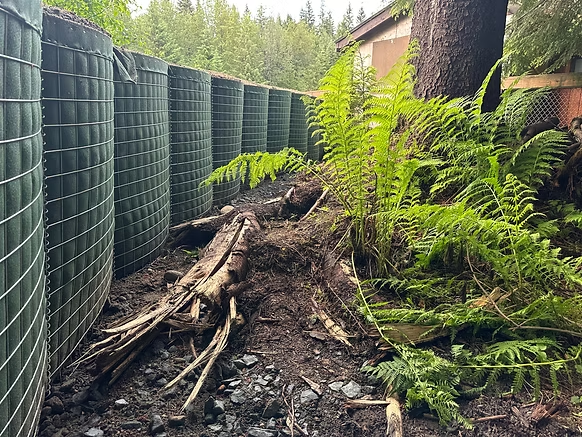
Leave a Reply